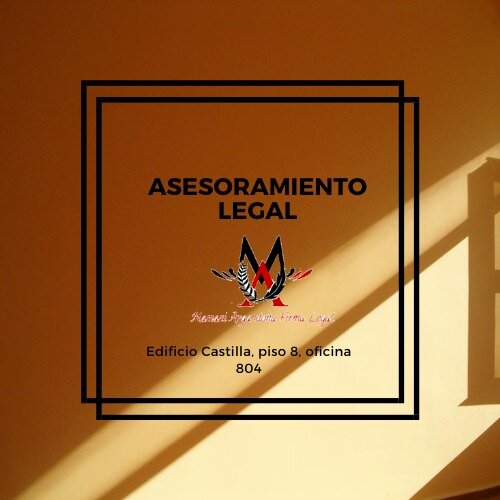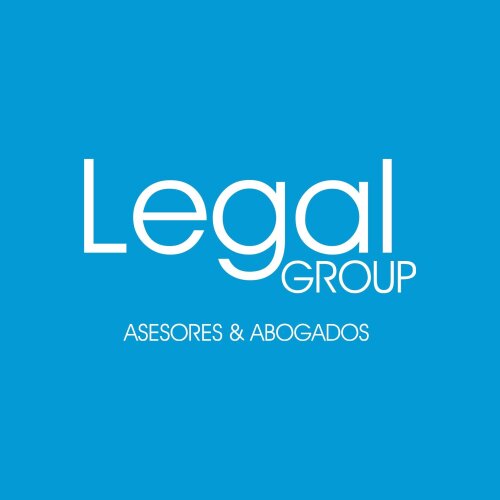Best Communications & Media Law Lawyers in Bolivia
Share your needs with us, get contacted by law firms.
Free. Takes 2 min.
Or refine your search by selecting a city:
List of the best lawyers in Bolivia
About Communications & Media Law in Bolivia:
Communications & Media Law in Bolivia governs the rights and responsibilities of individuals and organizations in relation to the use of communication technologies, including broadcasting, telecommunications, and the internet. These laws cover issues such as freedom of speech, intellectual property rights, defamation, and privacy rights.
Why You May Need a Lawyer:
You may need a lawyer in Bolivia for Communications & Media Law for various reasons, such as:
- Defamation claims
- Intellectual property disputes
- Privacy violations
- Regulatory compliance issues
Local Laws Overview:
In Bolivia, the Constitution guarantees freedom of expression, but there are restrictions in place to protect national security, public order, and public morals. The Law on Telecommunications and Information Society regulates the telecommunications sector, while the Copyright Law protects intellectual property rights in media content.
Frequently Asked Questions:
1. What is defamation?
Defamation is when someone makes false statements that harm the reputation of another person or organization.
2. How can I protect my intellectual property rights?
You can protect your intellectual property rights by registering your creative works with the appropriate authorities in Bolivia.
3. Can I be held liable for the content posted on my website?
Yes, you can be held liable for the content posted on your website, especially if it violates privacy laws or contains defamatory statements.
4. What are the regulations regarding broadcasting in Bolivia?
Broadcasting in Bolivia is regulated by the National Telecommunications Authority, which oversees licensing and compliance with broadcasting standards.
5. What constitutes a privacy violation in the media?
A privacy violation in the media occurs when someone's private information is disclosed without their consent, leading to harm or embarrassment.
6. Can I use copyrighted material in my media production without permission?
No, using copyrighted material without permission is a violation of intellectual property rights and could result in legal action.
7. How can I file a complaint about media content that I believe is defamatory?
You can file a complaint with the relevant regulatory authority or seek legal advice to address defamatory media content.
8. Are there restrictions on freedom of expression in Bolivia?
While Bolivia guarantees freedom of expression, there are restrictions in place to protect national security, public order, and public morals.
9. What are the penalties for violating Communications & Media Laws in Bolivia?
Penalties for violating Communications & Media Laws in Bolivia may include fines, imprisonment, or other legal consequences, depending on the nature of the violation.
10. How can I ensure compliance with Communications & Media Laws in Bolivia?
You can ensure compliance with Communications & Media Laws in Bolivia by staying informed about relevant regulations, seeking legal advice when needed, and following best practices in your communication and media activities.
Additional Resources:
For further information on Communications & Media Law in Bolivia, you can contact the National Telecommunications Authority or seek guidance from legal organizations such as the Bolivian Lawyers' Association.
Next Steps:
If you require legal assistance in Communications & Media Law in Bolivia, it is advisable to consult with a qualified lawyer who specializes in this field. They can provide you with expert advice and support to address your legal issues effectively.
Lawzana helps you find the best lawyers and law firms in Bolivia through a curated and pre-screened list of qualified legal professionals. Our platform offers rankings and detailed profiles of attorneys and law firms, allowing you to compare based on practice areas, including Communications & Media Law, experience, and client feedback.
Each profile includes a description of the firm's areas of practice, client reviews, team members and partners, year of establishment, spoken languages, office locations, contact information, social media presence, and any published articles or resources. Most firms on our platform speak English and are experienced in both local and international legal matters.
Get a quote from top-rated law firms in Bolivia — quickly, securely, and without unnecessary hassle.
Disclaimer:
The information provided on this page is for general informational purposes only and does not constitute legal advice. While we strive to ensure the accuracy and relevance of the content, legal information may change over time, and interpretations of the law can vary. You should always consult with a qualified legal professional for advice specific to your situation.
We disclaim all liability for actions taken or not taken based on the content of this page. If you believe any information is incorrect or outdated, please contact us, and we will review and update it where appropriate.
Browse communications & media law law firms by city in Bolivia
Refine your search by selecting a city.











